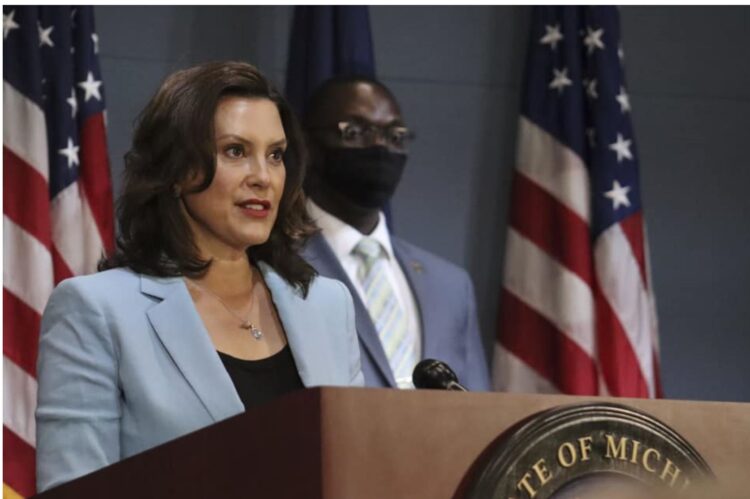Governor Whitmer signed Executive Directive 2020-08 to direct state departments and autonomous agency heads to review allocation of their resources to ensure that enforcement of COVID-19-related laws is a priority, such as limitations on capacity and the requirement to wear a mask when entering a Michigan business. Cases have risen over the past month—from a rolling seven-day average of about 15 cases per million on in mid-June, the low point since the peak last April, to about 50 cases per million in late July.
Without effective enforcement, Michigan will move backwards, causing individuals, businesses, and the economy to suffer. The governor’s directive therefore requires state departments and agencies to ensure that enforcement of COVID-19-related laws receives the priority that fighting a pandemic demands. Under the directive, directors and agency heads should assign elevated priority to enforcement of COVID-19-related laws in categories of establishments where transmission is well-documented, including but not limited to nursing homes, meat processing plants, and agricultural housing.
“Ensuring these executive orders are enforced across the state will protect Michigan families, small businesses, and the first responders on the front lines of this crisis,” said Governor Whitmer. “This fight is not over yet. During the month of July we saw an increase in positive COVID-19 cases in every region of the state. By allocating the appropriate and needed resources, we can continue to save lives and ensure we don’t have to move backward.”
Executive Directive 2020-08 requires departments to consider violations of law when determining eligibility for licensing. This includes any violation of relevant COVID-19 executive orders or epidemic orders. If a state department or agency becomes aware of non-compliance under the law they must consider it to be presumptive evidence of a “public health hazard” or “imminent and substantial hazard to the public health” and take appropriate steps to mitigate any risk to public health and safety. This includes, but is not limited to, suspension of a license or cessation of operation of a food establishment.
Ensuring the governor’s executive orders are enforced is necessary to slowing the spread of COVID-19 and saving lives. The Michigan State Police will enforce violations of these COVID-19 related laws, such as executive orders and DHHS epidemic orders, in the same manner as any other violation of law, applying their discretion as appropriate. Departments and agencies who become aware of a violation must share that information with relevant licensing authorities, and collaborate on enforcement to ensure efficiency and effectiveness.








